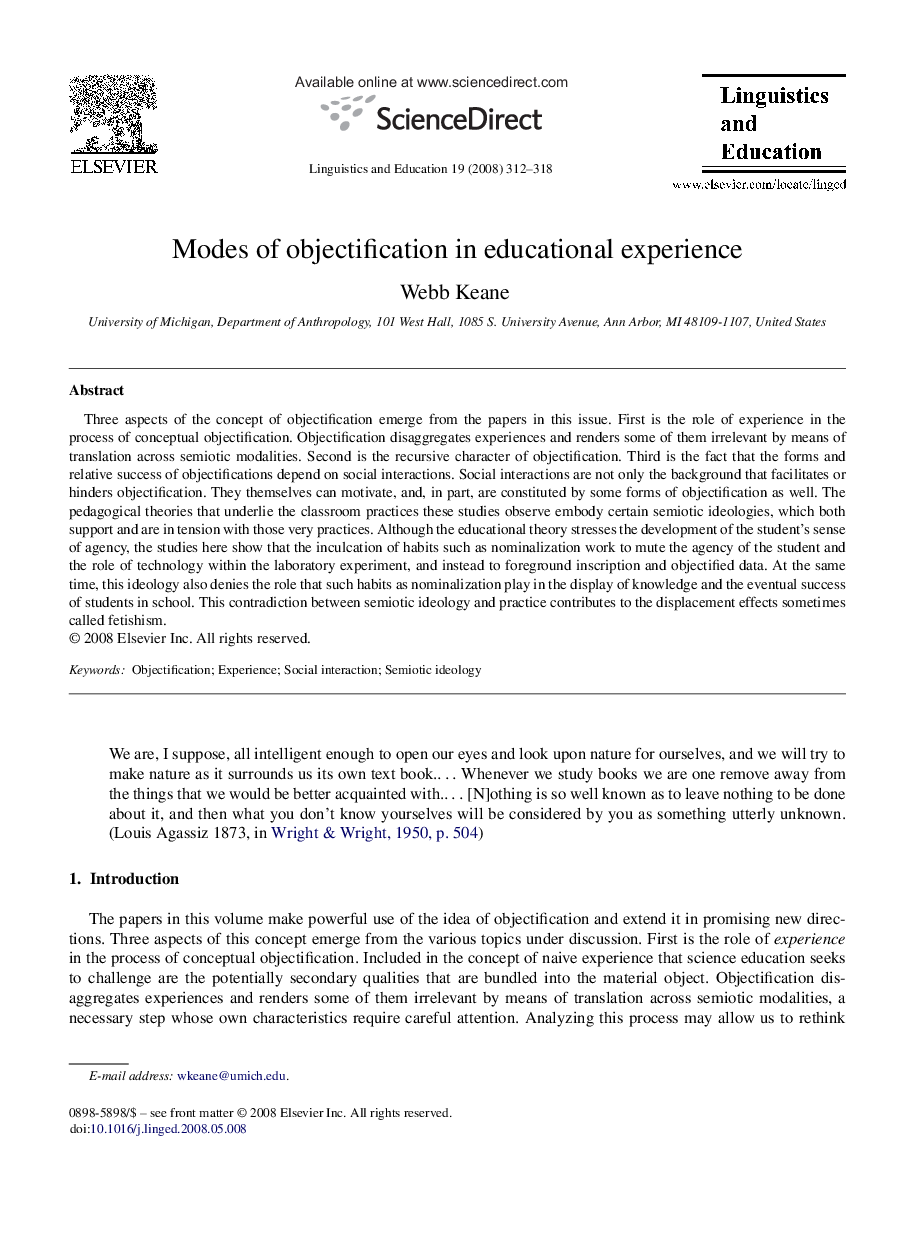| کد مقاله | کد نشریه | سال انتشار | مقاله انگلیسی | نسخه تمام متن |
|---|---|---|---|---|
| 366354 | 621369 | 2008 | 7 صفحه PDF | دانلود رایگان |

Three aspects of the concept of objectification emerge from the papers in this issue. First is the role of experience in the process of conceptual objectification. Objectification disaggregates experiences and renders some of them irrelevant by means of translation across semiotic modalities. Second is the recursive character of objectification. Third is the fact that the forms and relative success of objectifications depend on social interactions. Social interactions are not only the background that facilitates or hinders objectification. They themselves can motivate, and, in part, are constituted by some forms of objectification as well. The pedagogical theories that underlie the classroom practices these studies observe embody certain semiotic ideologies, which both support and are in tension with those very practices. Although the educational theory stresses the development of the student's sense of agency, the studies here show that the inculcation of habits such as nominalization work to mute the agency of the student and the role of technology within the laboratory experiment, and instead to foreground inscription and objectified data. At the same time, this ideology also denies the role that such habits as nominalization play in the display of knowledge and the eventual success of students in school. This contradiction between semiotic ideology and practice contributes to the displacement effects sometimes called fetishism.
Journal: Linguistics and Education - Volume 19, Issue 3, Winter 2008, Pages 312–318